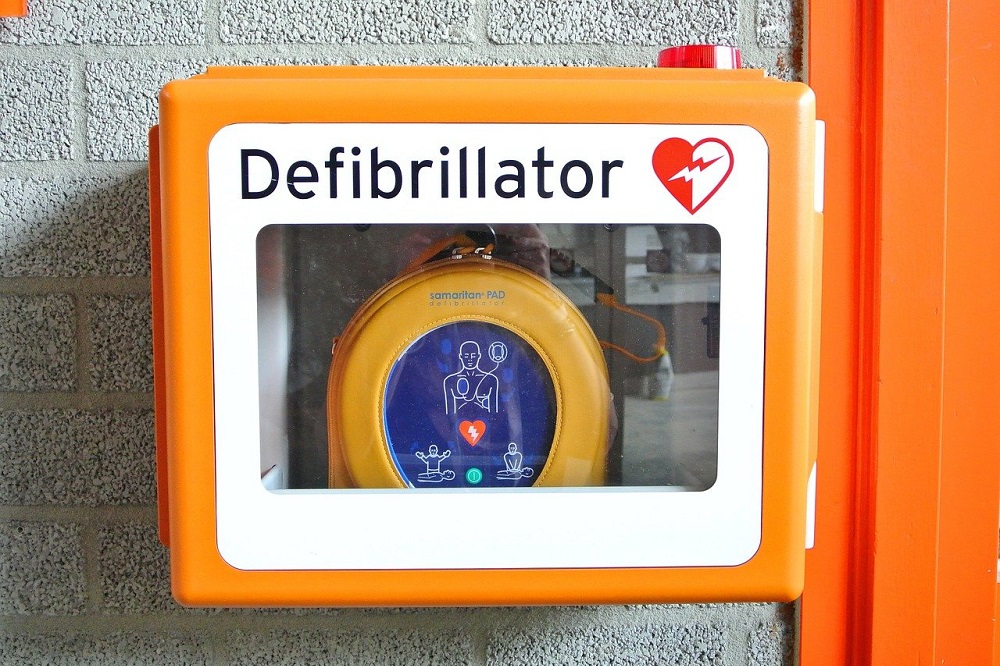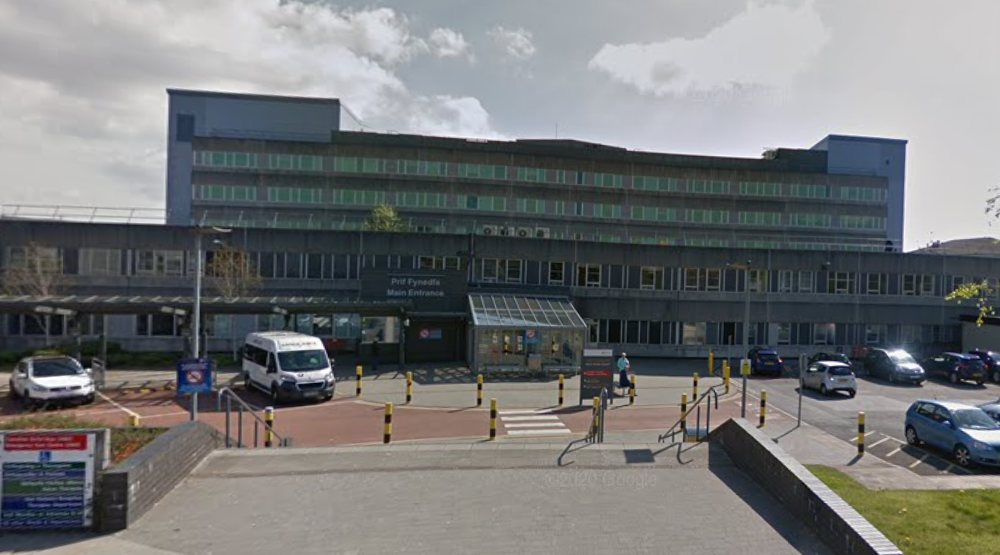Senedd roundup: Health official rules out return to shielding for those most at risk in Wales

Owen Donovan, Senedd Home
Dr Frank Atherton, the Chief Medical Officer for Wales, has ruled out reintroducing shielding for people most vulnerable to Covid-19 despite the surge in cases in recent weeks.
Around 130,000 people were advised to take shielding measures in March because they were at a high risk of developing serious illnesses if they contracted the virus.
Shielding in Wales was ended in August as the number of cases of the virus declined.
Dr Atherton has written to each person on the shielding patient list warning them to “take extra care” and advising them to follow coronavirus restrictions, keep contacts to a minimum – even if rules are relaxed after the firebreak – and to maintain social distancing.
Last week Welsh Conservative Shadow Health Minister Andrew RT Davies MS, called for the immediate resumption of the “shielding” process.
“Ministers have a duty to protect the most vulnerable in society and with concerns over the current trajectory of the virus, it’s only right that we place a protective ring around those most at risk,” he said.
Public Health Wales has confirmed seven further deaths due to coronavirus and 1,134 new cases in the last 24 hours.
Of the new deaths reported today three were in the Aneurin Bevan health board area, 3 in Cwm Taf and one was in Powys. A total of 1,743 people have died because of the virus since the first fatality in Wales in March.
Overall, there have been over 5,000 positive tests for the virus over the last seven days and 55 people have died according to PHW’s figures, the highest number since May.
Cardiff recorded 221 new cases since yesterday, taken the weekly total to 1,174. The capital has the highest rate of infection in the country, at 320 cases per 100,000 people and a positive test rate of 18.7% per 100,000.
Rhondda Cynon Taf reported the second highest number of new infections with 150 and there were 96 in Swansea and 78 in Caerphilly.
The infection rate in RCT over the last seven days is 269 per 100,000 people and the positive test rate has risen to 18% per 100,000 tests.
455 people that are not resident in Wales have tested positive in the last week with a positive test rate of 18.7%, the second highest in the country.

“Nuclear mud” petitioners get what they want as environmental assessment announced
- EDF will undertake an Environmental Impact Assessment on new mud dredged from the construction site of Hinkley C nuclear power station, set to be dumped off the coast of Cardiff.
- Support for thorough testing of the mud, but people need to know that “it’s not nuclear waste”.
- Natural Resources Wales “won’t issue a marine licence for unsafe sediment”.
P-05-1003 “Demand an EIA (Environmental Impact Assessment) now on the dumping of radioactively contaminated mud in Welsh waters”
Submitted by Cian Ciaran
Signatures: 10,692
Environmental assessment process needs to be open and transparent
Chair of the Petitions Committee, Janet Finch-Saunders MS (Con, Aberconwy), outlined why the petitioners had secured a victory (of sorts) before the debate was tabled.
She praised EDF and Natural Resources Wales for providing regular public updates via a dedicated web page, which is a big improvement on the last time the issue was raised in the Senedd. Whether the UK uses nuclear power or not is beyond the scope of the petition and the Senedd, but the only way people can be sure the dredged mud is safe is through detailed testing.
Llyr Gruffydd MS (Plaid, North Wales) noted EDF’s intention to go beyond the usual regulatory requirements to provide additional assurances, which he said was a measure of the petition campaign’s effectiveness. Given the tidal range of the Severn estuary, the dredged mud would spread across a wide area.
Andrew RT Davies MS (Con, South Wales Central) backs nuclear energy but believes it’s important that EDF “don’t mark their own homework”; the methodology has to be tested.
Jenny Rathbone MS (Lab, Cardiff Central) added that it was important to stress that it’s not nuclear waste being dumped off Cardiff – which is the impression some people have – while Caroline Jones MS (Ind, South Wales West) hoped for deep depth testing for a wider range of radionucleotides.
No marine licence if the sediment is deemed to be unsafe
Environment, Energy & Rural Affairs Minister, Lesley Griffiths (Lab, Wrexham), welcomed EDF’s announcement. She couldn’t comment on the EIA process itself as there are legal duties on the Welsh Government as an appeals body.
She was quite clear that no marine licence would be granted if the mud is deemed to be unsafe.
“I can assure Members that Natural Resources Wales will require a robust and thorough EIA process to support an application for a marine licence, which will be subject to consultation with NRW’s technical experts and the public. A marine licence to dispose of marine sediment will only be granted by NRW following a favourable decision on the EIA, and only if the necessary sediment testing – conducted in line with international standards – determines the material is safe and suitable for disposal at sea, and poses no significant risk to environmental or human health.”
– Environment, Energy & Rural Affairs Minister, Lesley Griffiths
The petition was unanimously noted.

Rail nationalisation proposals draw mixed response
Opposition politicians have given a mixed response to the announcement that the Transport for Wales rail franchise is to be brought under Welsh Government control from next February.
Confirming the decision earlier today, Transport Minister Ken Skates said: “The last few months have been extremely challenging for public transport in Wales and across the UK.”
“Covid has significantly impacted passenger revenues and the Welsh Government has had to step in with significant support to stabilise the network and keep it running.”
Responding to the proposal, Plaid Cymru Shadow Minister for Transport Helen Mary Jones MS said: “This could well be the right decision. Plaid Cymru has always maintained that our railways should be brought into public hands and the government put passengers before profit. We called for the rail franchise to be a not for profit model before it was let – calls that were dismissed by Labour.
“However crucial questions remain. What are the financial implications? Does Transport for Wales have the capacity to directly manage the service? What is the nature of this subsidiary?
“Decisions of this importance should be announced in the Senedd so that members can ask questions on behalf of the people of Wales. I’m grateful to the Minster for agreeing to meet me privately to discuss, but that is no substitute for public scrutiny. I believe that there is a case for the Senedd to be recalled so that this can be debated.”
Criticising the move, Welsh Conservative Shadow Minister for the Economy, Russell George MS, said: “Given the track record of the Welsh Labour-led Government, its decision to take control of our vital train industry has not filled me with any hope. Given how reliant the people of Wales are on using trains, we cannot allow the Welsh Labour-led Government to run it into the ground, like it has with Cardiff Airport.
“Before making this decision, Welsh Labour-led Government ministers should have consulted the Welsh Parliament on the list of failings facing the industry pre-Covid – especially the lack of outdated train stock – as well as, crucially, how much this decision is going to cost the Welsh taxpayer.
“Eyebrows will be raised, too, on why any support is being left until February 2021.
“There is no excuse to waste hardworking families’ taxes and that is why I call on the Welsh Labour-led Government to immediately answer our serious concerns.”

Renewed call for widespread life-saving skills training to increase the terrible out-of-hospital cardiac arrest survival rate
In the latest proposal for a backbench member’s legislation, Alun Davies MS (Lab, Blaenau Gwent) put forward a proposal for a Bill which would seek to improve the outcomes of people who have cardiac problems, expand access to public defibrillators and ensure life-saving skills are provided to as many people as possible.
“First aid training saved my life”
For those reading this who didn’t already know, Alun Davies suffered a near-fatal cardiac arrest back in the spring of this year whilst out running.
While a cardiac plan is in place, several members have campaigned for life-saving skills such as CPR to be routinely taught in schools and colleges. While the number of available public defibrillators has increased, what was equally important was being able to find them quickly and to use them “within minutes”. Only 3% of people survive an out-of-hospital cardiac arrest.
Suzy Davies MS (Con, South Wales West) – whose campaigned for routine first aid training for years – reminded the chamber that routine life-saving skills training is something the Senedd has backed in the past. It’s also top of the list of skills the Welsh Youth Parliament would want to see included in the new curriculum.
Mick Antoniw MS (Lab, Pontypridd) – whose wife died of a sudden cardiac arrest – said he had given CPR to her “for what seemed like an eternity”. He expressed support for routine scanning for underlying heart conditions.
Dr Dai Lloyd MS (Plaid, South Wales West) said that while there may be concerns from bystanders about causing harm to someone who’s suffered a cardiac arrest. Putting it into stark terms, he said they’re already dead – hence the very low survival rate out-of-hospital – and it’s difficult to make the situation any worse by intervening.
More than 5,000 public defibrillators available in Wales
Health Minister, Vaughan Gething (Lab, Cardiff S. & Penarth), said it was always powerful when MSs talk about personal experiences.
The starting point for him would be to prevent poor cardiac health in the first place as part of a broader public health strategy covering smoking, alcohol and obesity.
“There’s been a steady increase in the number of defibrillators mapped into the Welsh ambulance dispatch system. We now have….5,042 defibrillators across Wales available to the public now registered, and the establishment of an out-of-hospital cardiac arrest register to better map the data surrounding out-of-hospital cardiac arrests….from onset to treatment and discharge from hospital.”
– Health Minister, Vaughan Gething
As there was a cardiac action plan already in place which is yet to run its course, the Welsh Government couldn’t back the idea. However, he didn’t rule out legislative measures in the future if progress is too slow.
The vote itself was non-binding and more on a point of principle:

Adding blue to the green recovery
This week’s short debate came from Joyce Watson MS (Lab, Mid & West Wales) on the role the seas can play in the green-led recovery once the Covid-19 pandemic is over.
“Teal new deal”
Most of the talk about the economic recovery is about a green new deal, but it should include measures to harness the power of the seas and take necessary steps to protect the seas at the same time. She was pleased that marine energy demonstration areas have been included (as part of the Swansea Bay city region).
“Ultimately, there can be no blue-green recovery if we do not recover the health of our waters. Right now, nearly 50% of protected wildlife in our seas is in poor condition. So, I would support many of the policies that the Wales Environment Link has been calling for, like ensuring that at least 10% of Welsh waters are fully protected by 2030.”
– Joyce Watson MS
Economically, it was important that the Welsh fishing fleet catches more fish in Welsh waters and are given a larger share of current quotas.
Huw Irranca-Davies MS (Lab, Ogmore) stressed the importance of improving existing marine protected areas off the Welsh coast as only 1% of their area is deemed to be well-managed by scientists.
Welsh coast “an integral part of our history, economy and way of life”
Environment, Energy & Rural Affairs Minister, Lesley Griffiths (Lab, Wrexham), said the importance of the sea was recognised in the government’s marine plans.
“There is huge potential for the marine and renewable sectors to grow responsibly in Wales, and I’m encouraged by the growing interest in Welsh waters. I want to see projects coming forward that support coastal communities and are designed and built with biodiversity in mind, supporting our ecosystem resilience. My officials are working in partnership through a consenting strategic advisory group to deliver a suite of actions aimed at de-risking and accelerating the responsible deployment of marine renewable energy.”
– Environment, Energy & Rural Affairs Minister, Lesley Griffiths
Securing a future for the Welsh fishing industry was seen as a priority, without going into any details, the Minister said there was a commitment to introduce a post-Brexit fisheries policy based on sustainability but with the necessary flexibility.

£220 million refurbishment for Merthyr’s Prince Charles Hospital
The Welsh Government will fund a £220 million refurbishment of Prince Charles Hospital, which will start in November and is not expected to be fully completed until 2026.
The money will be used to update various inpatient and outpatient services, including radiology, endoscopy, operating theatres, diabetes services and critical care. At least 60% of the contract value will be spent within Wales and up to 80 apprenticeships will be created as a result.
The Chair of Cwm Taf Morgannwg health board, Marcus Longley, said: “This is excellent news. There are still several years of major work to take place in Prince Charles Hospital, and this investment gives that work new impetus. When it’s finished, we will have a hospital truly fit for generations to come.”

Universities “should help each other out”
Sian Gwenllian MS (Plaid, Arfon) asked about the financial situation at universities. Applications for a higher education resilience fund need to be in by the end of October, which will lie within the firebreak period.
Additionally, the funding is split between support for individual universities and money for collaborative projects. Would the Minister consider changing this so it prioritised emergency support to individual universities?
Education Minister, Kirsty Williams (Lib Dem, Brecon & Radnor) said any decision on timing and details of the funding would be down to HEFCW. However, the collaborative approach should be seen as positive.
“….there is a huge appetite amongst the higher education sector here in Wales, which is based on values of cooperation rather than competition, to work together to support each other during this time. That is particularly important when being able to resource a blended learning approach, (or) support each other in the provision of bilingual opportunities for blended learning. So, I wouldn’t want to curtail the ability of Welsh universities….to help one another to get through this time.”
– Education Minister, Kirsty Williams
A firebreak now would mean less disruption to learning later
One of the key measures announced as part of the firebreak lockdown was that secondary school students from Year 9 onwards will need to stay at home until November 9th.
Shadow Education Minister, Suzy Davies MS (Con, South Wales West), said this decision went against the wishes of the leaders of the 22 local authorities who wanted secondary schools to remain fully open after next week’s half-term break (like primary and special schools).
The Welsh Government was too keen to instruct and not keen enough on listening, while the quality of blended learning was highly variable and the ongoing disruption to learning was affecting the mental health of teachers and students alike.
The Minister said a firebreak now could lead to less disruption in the future:
“I regret there is any further disruption to education….Unfortunately, Covid-19 doesn’t care about that. The best way in which we can minimise disruption to schools is to keep community transmission levels low. As we have seen community transmission levels rise, we have seen growing numbers of children in our classrooms who have had to self-isolate. If we are to get back to a more even keel and to lessen that disruption to individual classes and teachers and schools, we have to bring the R number down and that is what the firebreak is intending to do.”
– Education Minister, Kirsty Williams
Additionally, she appreciated the stress these sudden changes cause and an element of the additional support given to schools to deal with mental health issues is earmarked for staff.
Support our Nation today
For the price of a cup of coffee a month you can help us create an independent, not-for-profit, national news service for the people of Wales, by the people of Wales.





